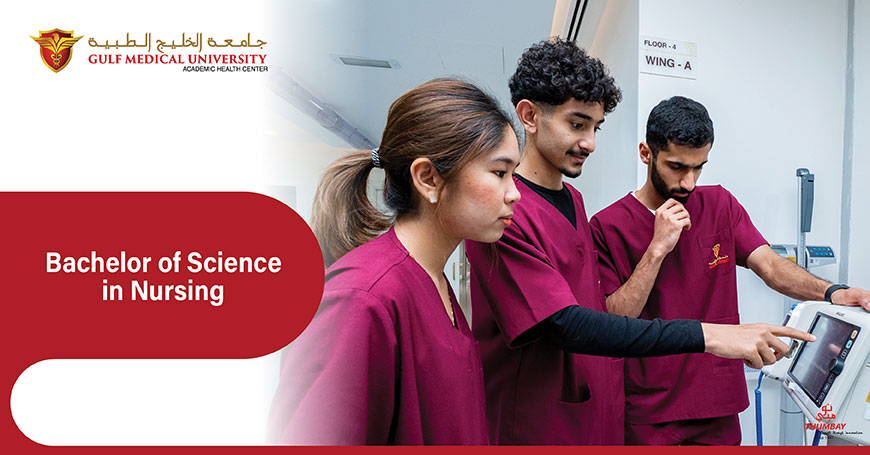Nursing is a profession within the health care sector focused on the care of individuals, families and communities so that they may attain, maintain or recover optimum health and improve their quality of life. Nursing is one of the most fulfilling career options of today with a strong job security. The Bachelor of Science in Nursing program is designed with an aim to keep pace with the changing demands of the global healthcare services and to align with international standards of nursing education. BSN program at Gulf Medical University is a four year degree program designed to produce highly skilled and competent nursing professionals. Students enrolled in nursing sciences program will be trained to work in a variety of challenging healthcare settings and also develop skills of critical thinking and problem-solving.
BSN graduates are prepared to:
- Assume responsibilities as professional, competent nurses at a basic level in providing promotive, preventive, curative, and rehabilitative services.
- Make independent decisions in nursing situations, protect the rights of and facilitate individuals and groups in pursuit of health, function in the hospital, community nursing services, and conduct research studies in the areas of nursing practice.
- Assume the role of teacher, supervisor, and manager in clinical/public health settings.
Who is a Professional Nurse?
- Professional nurses act as core members of the healthcare team by providing direct care and making decisions regarding the care of healthy, ill and injured people.
- Nurses provide holistic evidence-based care to individuals, families and community so that they may maintain, attain or recover optimum health and improve their quality of life.
- A nurse is a highly skilled health care professional who combines the art of caring with scientific knowledge, competencies and attitude developed through education.




